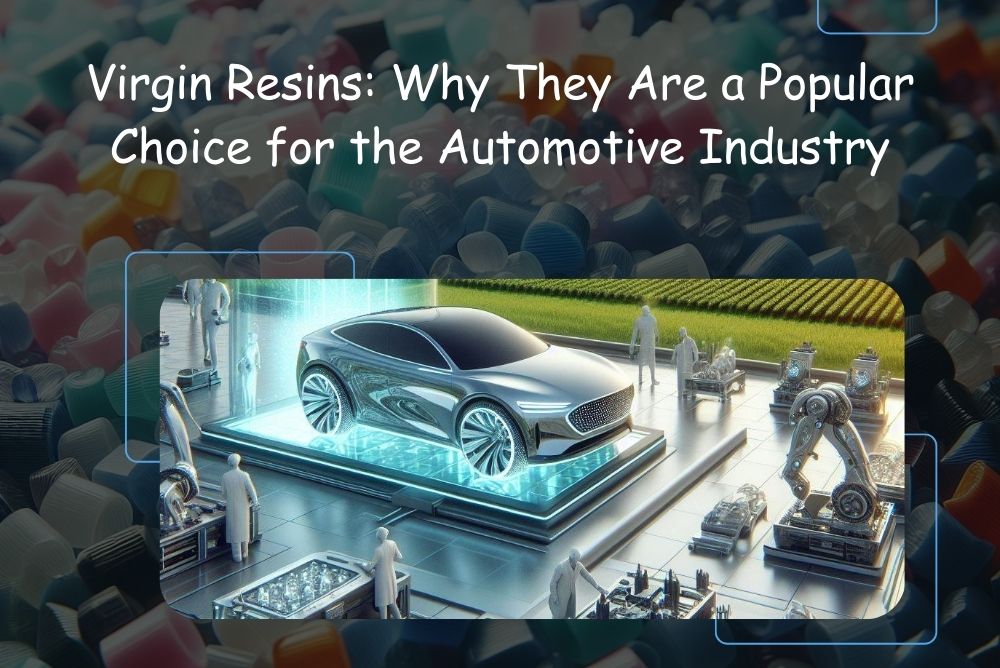
High-quality plastic resins have fundamentally transformed multiple industries over time, offering material options that rival metals in terms of thermal properties and beyond. The automotive sector is no exception. The incorporation of plastic resins has reshaped vehicle design, weight management, performance, and more. Thermally resistant virgin plastic resins are particularly prominent in this field, balancing performance, environmental sustainability, and cost-effectiveness. But there’s much more to the story. If you're curious about the significance of virgin resins in automotive manufacturing, their properties, applications, and future potential, this post dives into the details.
The Essence of Virgin Plastics and Their Role in Innovation
Virgin plastic represents the purest form of resin, meaning it hasn’t undergone any prior processing or use in manufacturing. This resin is derived directly from natural sources like petrochemical feedstock, crude oil, and natural gas. Its widespread adoption in the automotive industry stems from its exceptional durability and structural integrity, which vary depending on the specific resin type. Commonly used virgin plastics include HDPE, LDPE, LLDPE, and polypropylene. These materials boast several key attributes that make them ideal for automotive applications.
- Vehicles require consistent performance, and virgin resins deliver unmatched purity, strength, durability, and resistance to wear and tear. This reliability ensures their prevalence in various automotive components.
- One standout feature of virgin resins is their moldability. This allows manufacturers to craft intricate designs and complex shapes, which is crucial for achieving aerodynamic efficiency, safety, and aesthetic appeal in modern vehicles.
- Thermal stability is another hallmark of these resins, making them suitable for applications exposed to fluctuating temperature ranges.
Applications Across the Automotive Landscape
Virgin resin finds extensive use in the automotive sector, spanning everything from interior parts to engine bay components. Here are some of the most common applications:
- Interior Components: From dashboards to seat structures, virgin resins are essential for the interior design of vehicles. Their moldability enables lightweight, ergonomic, and visually appealing designs, enhancing driver comfort and satisfaction.
- Electrical and Electronic Systems: As cars become increasingly tech-driven, virgin resins are employed to fabricate casings for electrical and electronic components. Their insulating qualities and non-conductive nature make them ideal for such applications.
- Exterior Body Panels: Known for their durability and lightness, virgin resins are frequently used for external panels. These materials endure the rigors of daily driving, including impacts and adverse weather conditions, ensuring vehicle longevity and safety.
- Safety Features: Virgin resins are integral to safety systems like airbag housings and structural reinforcements. They maintain structural integrity under stress, playing a vital role in modern vehicle safety features.
Innovations Driving the Future
As automotive manufacturing continues to evolve, so too does the role of virgin plastic resins. With new challenges and regulations emerging, the focus remains on improving performance and sustainability. Key advancements include:
- Advanced Formulations: Ongoing research aims to enhance virgin resin properties by integrating additives and reinforcements. This improves traits like impact resistance, flame retardancy, and UV protection, making resins even more versatile.
- Sustainability Initiatives: Manufacturers are exploring eco-friendly alternatives, such as closed-loop recycling systems. By reusing production waste, they reduce environmental impact while maintaining quality standards.
- Integration with Emerging Technologies: As electric and autonomous vehicles gain prominence, virgin resins will play a critical role. These cutting-edge technologies bring unique demands, and virgin resins are positioned to meet those needs.
Challenges Facing Virgin Resin Adoption
While the use of virgin plastic resins holds immense promise, it also presents certain hurdles. Consider the following:
- Economic factors come into play, as virgin resins tend to be pricier than recycled alternatives. Budget-conscious manufacturers must weigh the cost-benefit ratio carefully.
- Despite being the purest form of resin, the extraction and processing of virgin resins rely heavily on fossil fuels. This raises environmental concerns, prompting scrutiny as sustainability becomes a priority.
- Consumer preferences also influence adoption rates. Many buyers favor eco-friendly and recycled materials, necessitating efforts to educate consumers about the long-term recyclability of virgin resins.
- Regional regulatory frameworks and standards add complexity. Manufacturers must navigate varying rules across markets, ensuring compliance while maintaining product consistency.
The integration of virgin plastic resins has enhanced vehicle safety, performance, and design flexibility. As the industry progresses, these materials will continue to drive innovation, efficiency, and sustainability. Whether you’re a carmaker or a supplier, sourcing high-quality resins is essential for producing top-tier automotive components. For trusted expertise in plastic resins, consider partnering with Mid Continent Plastics—a leading provider offering a full range of premium resins, robust inventory management, and nationwide sourcing solutions. Reach out to their team to ensure access to the finest materials for crafting automotive parts with precision and excellence.
Table Type Compressor Cooling Water Dispenser
table top water dispenser,under counter water dispenser,water dispenser for home
Ningbo Feter Electrical Appliance CO., LTD. , https://www.feterappliances.com
